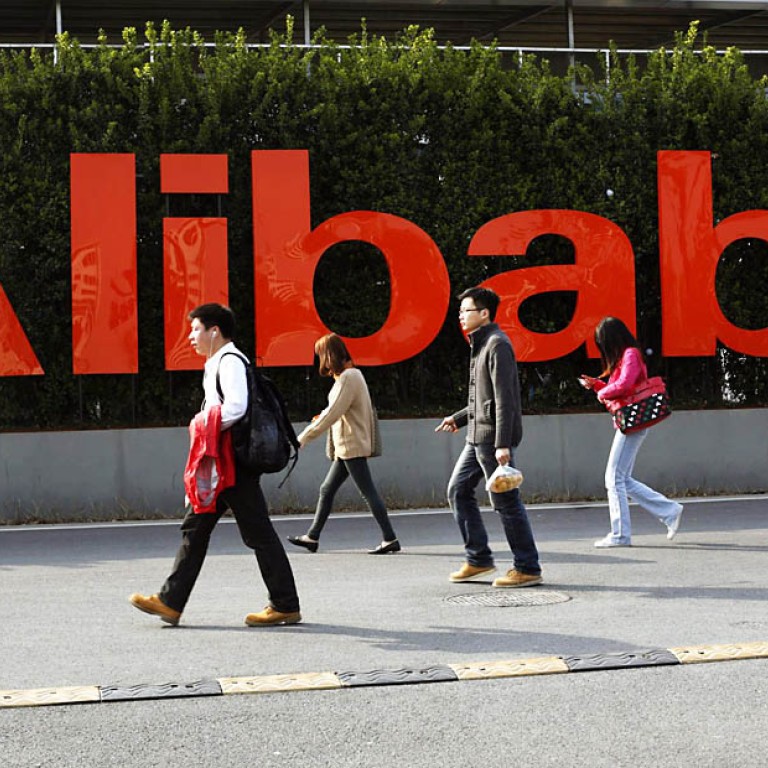
Will Alibaba IPO dash investors' hopes again?
Issues of concern include the firm's acquisition strategies, transparency level and governance
The newest version of the Chinese internet boom rides atop the latest technology bubble in the United States. For more than a week, analysts have been poring over Alibaba Group's filing for its initial public offering. Understanding the sustainability of these stocks and the sources that feed the bubble offers a unique insight into Alibaba's pricing and its future as a technology giant.
Today's internet titans sustain their valuation stories by paying for sky-high acquisitions with sky-high-priced shares. Facebook's purchase of messaging service WhatsApp and virtual-reality eyewear firm Oculus for valuations once reserved for life-saving drugs puzzled markets.
They may only be setting a benchmark for acquisitions that are obtusely related to the buyer's original business. Only time will tell how and if they support Facebook's historical price-earnings ratio of 100 and price-sales and price-book ratios of 20.
Alibaba could re-imagine and transform itself into a digital media conglomerate
Financial and technology strategists can justify even the most obscure acquisitions as the inspired work of visionary founders. However, all of this ends when the market runs out of sizable growth opportunities.
If its initial share sale is record-setting, Alibaba will be hard pressed to justify acquisitions valued at less than US$1 billion or even US$10 billion because even if they double in value, there is little appreciable effect on the group. Beyond the hype, shareholders have to consider that making too many acquisitions creates integration and management problems.
Competitors have made large and suitable technology targets, the source of ever-higher valuations, harder to find. Ironically, Yahoo could end up being owned by Alibaba after the float if it fails to execute its turnaround after selling most of its Alibaba stake.
Owning Yahoo would instantly create a formidable entry into the US market. Alibaba could boldly re-imagine and transform itself into a digital media conglomerate by taking over a major Hollywood studio like Columbia TriStar, which Sony could sell as part of a restructuring, or Legendary Pictures, which is seeking closer Chinese ties.
Institutional investors must decide if Alibaba is suitable as a core investment or a hedge fund play. The need for effective corporate governance imposes clear standards for each investment in a mutual fund. However, hedge funds can exploit event risk arbitrage opportunities in areas of uncertain or conflicted transparency.
Pricing Alibaba will also represent an auction of how institutional managers feel about the future integrity of Alibaba management in light of the alleged treatment of Softbank and Yahoo in the Alipay transaction. Can investors trust Jack Ma Yun? No more or less than Mark Zuckerberg or any other chief executives whose board possesses near absolute authority. However, technology offerings are more about future prospects rather than past controversies.
According to Alibaba's filing, the company's executives actually control Alipay, one of the most profitable parts of the empire. But Alibaba itself does not own shares in Alipay and its financial results are not revealed.
Going forward, the lack of transparency and alignment can heighten volatility and speculation and create substantial arbitrage opportunities.
Ignore current optimism and look at data from . It reveals a particularly rocky 18 months to June 2012, when private equity was involved in 41 listings of Chinese firms in the US. Of those, 18 saw their share prices drop as much as half and 10 fell even further.
Social networking giant Renren was afflicted by serial accounting irregularities despite backing from four private equity firms that were supposed to support strong corporate governance. After a New York listing in May 2012, auditor Deloitte Touche Tohmatsu abruptly resigned, citing "recently identified falsity" and deliberate interference from management.
By the end of June 2012, two dozen China stocks were suspended from trading on exchanges around the world. Many were forced to halt trading or delisted because of accounting or disclosure irregularities.
Lack of transparency and corporate governance shortfalls could make Alibaba the most overpriced or underpriced offering in history. Investors need to understand that there is not enough and there will never be enough transparency in a Chinese company to satisfy Western sensibilities.

